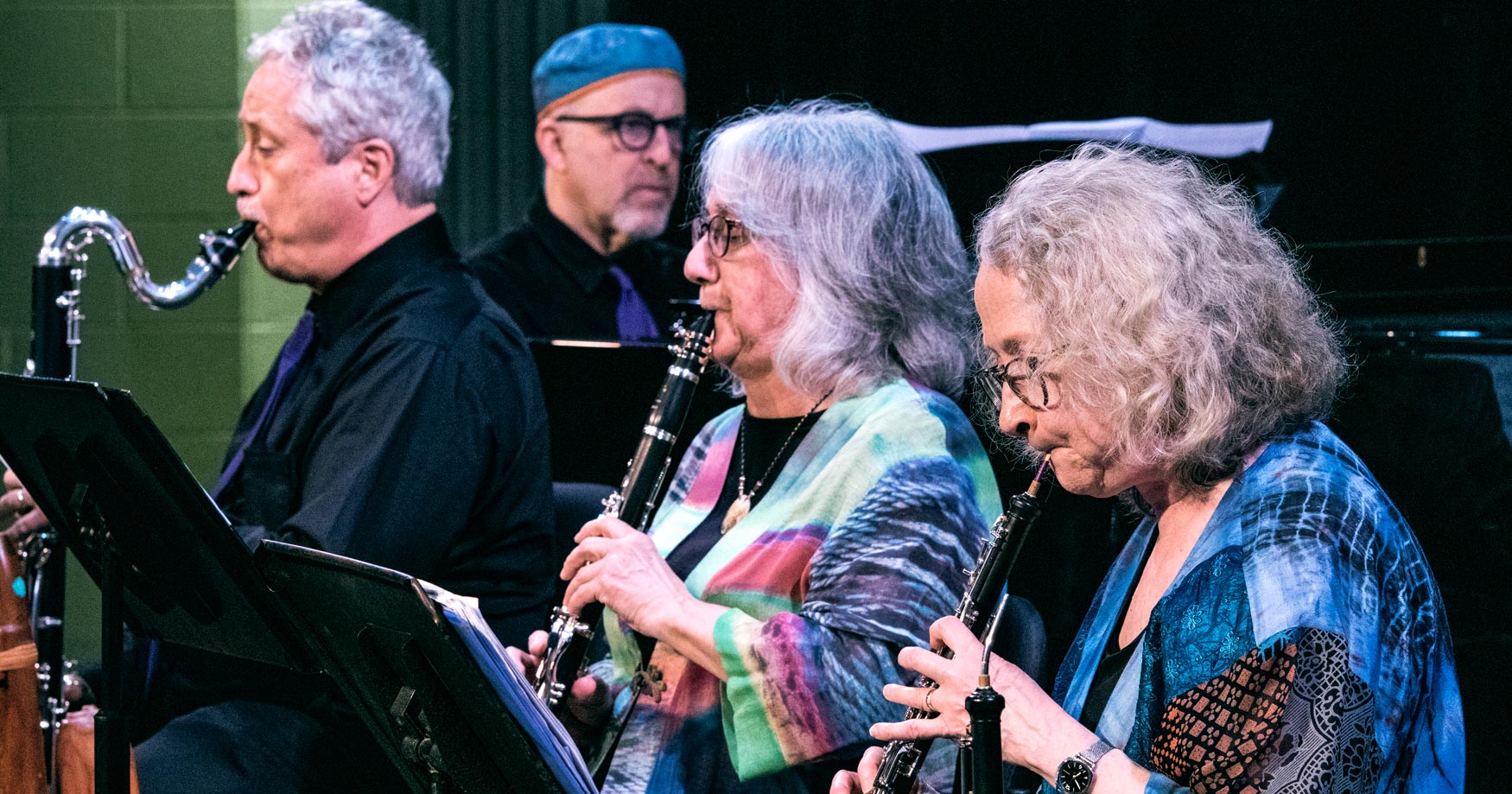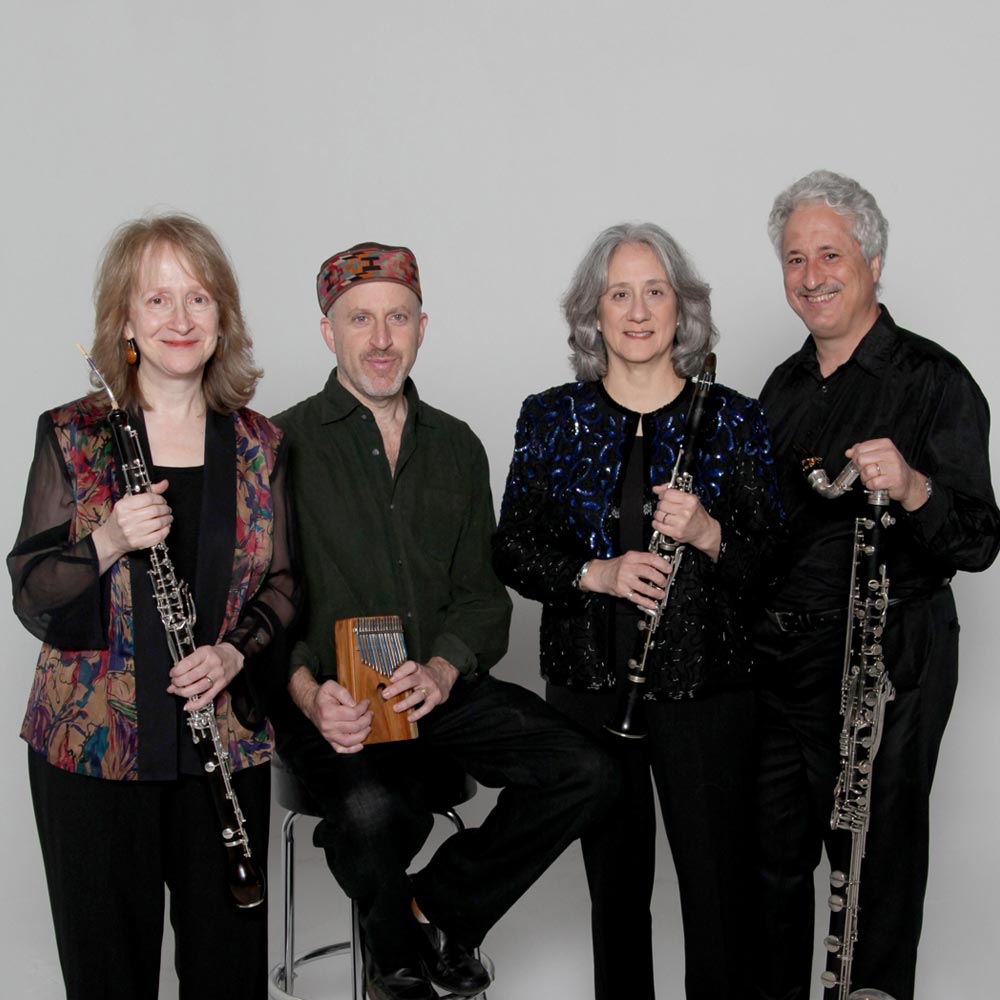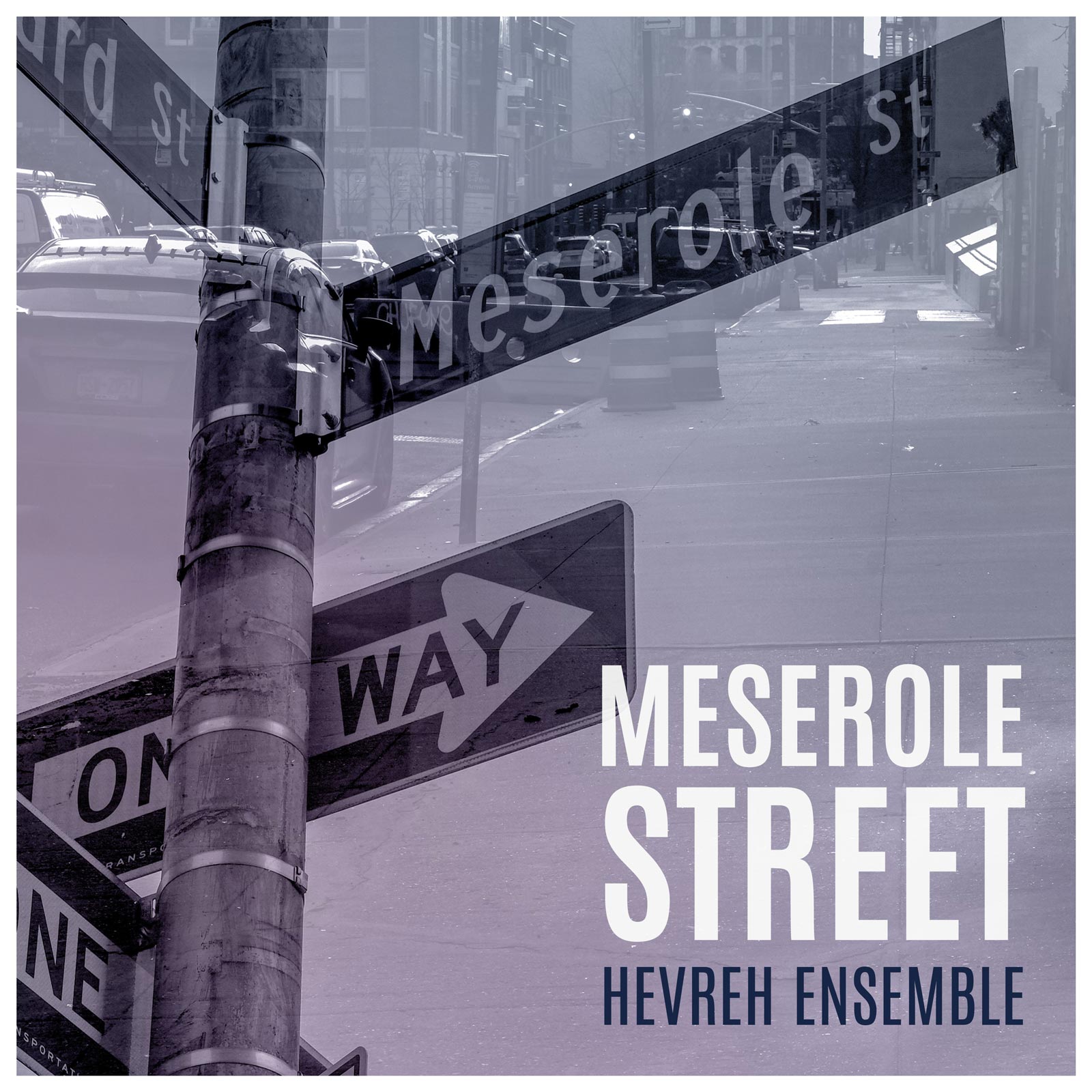
Formed from long standing friendships and mutual musical interests, whose distinctive sound has been embraced internationally, the Hevreh Ensemble returns with MESEROLE STREET, a collection of works from composer and ensemble member Jeff Adler. With music inspired by friends and family, nostalgia, and several compositions influenced by the 2020 pandemic, the ensemble employs a variety of instruments both common and unique, namely the Native American flute and the shofar horn.
Today, the members of the Hevreh Ensemble are our featured artists in “The Inside Story,” a blog series exploring the inner workings and personalities of our composers and performers. Read on to learn about each of their artist backgrounds, and how they come together to form something truly unique…
Judith Dansker:
What were your first musical experiences?
I grew up in Pittsburgh PA, a city steeped in culture and musical traditions. As young music students, we had the opportunity to study with members of the Pittsburgh Symphony in a special Saturday enrichment program, free of cost. We were given private lessons, theory and ear training classes and were coached in chamber ensembles. My High School had three orchestras and there was an All City Orchestra and also the Pittsburgh Youth Symphony. Pittsburgh was the home of the Heinz family and they sponsored a trip for the youth symphony to an International Festival of Youth Orchestras to Switzerland!
Summer evenings we would attend outdoor concerts by the American Wind Symphony in downtown Pittsburgh at Three Rivers Park. Their home base was a barge that sat on the banks of the Allegheny River. They often played Aaron Copland’s stirring Fanfare for the Common Man. The clear sounds of the brass and percussion rang through the air and in the night sky we witnessed a “working man’s” light show. From distant steel mills, we watched molten iron ore flowing from giant pots.
What advice do you have for young musicians?
For young musicians that are thinking about a career in music or are just embarking on their journey, three thoughts come to mind: follow your passion, maintain a strong sense of perseverance, and keep an open mind.
It may seem daunting at times, but music, even with its many challenges and roadblocks, has been a constant source of joy in my life. It is helpful to have a stubborn streak and realize from the beginning that it is important to persevere. There have been many rewards in my career and by keeping an open mind, I have been able to become involved in projects that I would not have imagined possible. Case in point: our group Hevreh Ensemble. For many years, ensemble member Laurie Friedman and I were members of an established woodwind quintet, The Galliard Quintet. In our late 40s, when some musicians may sometimes experience dissatisfaction with the direction of their careers, we started to play original works by group member and composer Jeff Adler, that utilized his love of Native American Flutes. This was a passion that Jeff had followed and from this, a new genre was created!
Jeff Adler:
Tell us about your first performance.
During the summer between third and fourth grades, my mother enrolled me in a summer band. Since I had already picked the clarinet as my future school instrument, we rented a clarinet for the summer. I don’t remember much about that summer, but I will always remember my very first performance. My beginner’s band walked from our rehearsal room in the High School to the outdoor stage around the back of the school. Strangely enough, I wasn’t at all nervous but I was very excited. I remember it to be a beautiful evening. The one piece we performed was Offenbach’s Barcarolle. I still smile every time I hear that work.
What do you hope this album will mean to listeners?
Although a good number of pieces on this album were written during the pandemic lockdown, I don’t want anyone to consider this a pandemic album. There were times that I wrote music filled with joy, even if my heart was sinking. In many ways, these works were therapy for me. I hope listeners will hear the joy in some of these pieces. Works like ‘Freedom Day” and ‘Perihelion’ look forward to brighter times. When listening to ‘Meserole Street’, feel free to sit back and relax with a glass of wine or brandy. If you do feel like reflecting on the pandemic, listen to ‘Alone’. As with all of Hevreh’s albums, I want the listener to forget their worries and enjoy.
Laurie Friedman:
How have your influences changed as you grow as a musician?
Being the Grandchild of immigrants, I witnessed their powerful way of living life in a country completely different from Old World life. Inspirational stories of the Spanish Flu, my aunt contracting the polio virus, the Depression, WWII — financial insecurity was ingrained in my humanity. When they spoke of how music sustained them; the passionate love of orchestra concerts, going to the old Metropolitan Opera House listening and standing for hours to see various operas, deeply influenced my young musical life. As I matured and my loved ones passed on, those stories, my own stories, the birth of my children and the experience of
performing all helped transform me into an ever changing musician. One must always keep the passion of music alive or you will lose that joy.
What are your other passions besides music?
I have been making art for over 35 years. My sculptures are highly experiential and responsive; they are at times a reply to major tragedies and triumphs of humanity. I am interested in scale; some pieces appear minimal and abstract at first, but close inspection reveals tiny representative details — planes, ribcages, the broken mast of a boat. Some pieces take eight years to make, while others are completed within a year. All are inspired by our life on this planet and make use of the world’s beautiful natural materials…. wood. After I finish a sculpture, the passion I feel for the finish piece lasts longer than a concert. Sculpture is legacy and music is life.
Adam Morrison:
If you weren’t a musician, what would you be doing?
I like working with my hands and with organic materials. The combination of precision and creativity is attractive to me. I’d be a carpenter. In jazz, the precision is intellectual, and that work is done ahead of time in order to be able to be spontaneous and in the moment. In classical music or notated music, the precision is in the moment, and of course the creativity is as well, although that window is more narrow. As musicians, we spend a lot of time alone, and, although, maybe the greatest joy is collaborating with others, and for others, we spend a fair amount of every day alone with ourselves, and our craft. If I wasn’t spending my day playing music I’d be making things with my hands and doubtlessly listening to music.
If you could collaborate with anyone, who would it be?
I am going to give a general answer to this question, because what comes to my mind is not a particular individual, but a particular kind of situation. My greatest joy is being on stage with a range of people from various parts of the world, often with very different backgrounds, and even different political outlooks. You can’t throw any combination of ingredients into a blender and think that a tasty smoothie will come out, but with the right ingredients, and those could be ones that are not usually put together, you get something very special and even magical and also, I believe, healing, especially at this moment in history.

Hevreh is a Hebrew word meaning “Circle of Friends.” Friendship, relationship, connection— these make up the DNA of the HEVREH Ensemble. Formed and cultivated by a group of friends, both new and lifelong, HEVREH Ensemble is the best kind of chamber group— their “clean, tight, creative… aesthetic that defies description” (Audiophile Audition) makes it abundantly clear that this is a group of people who know each other well and who work intensely and closely together.


